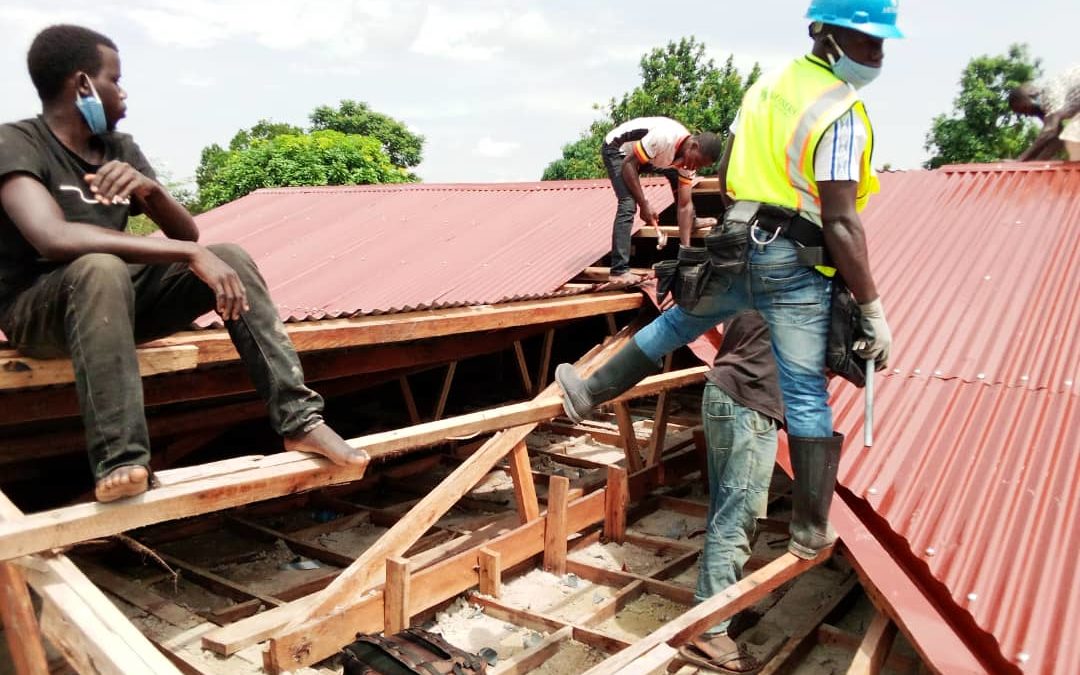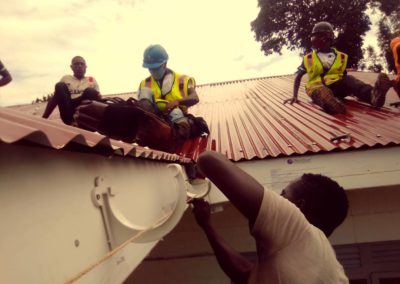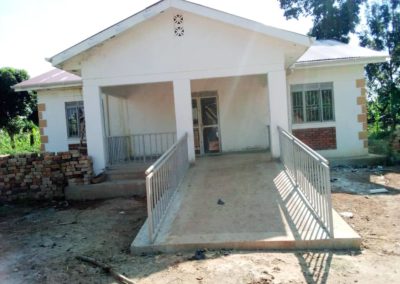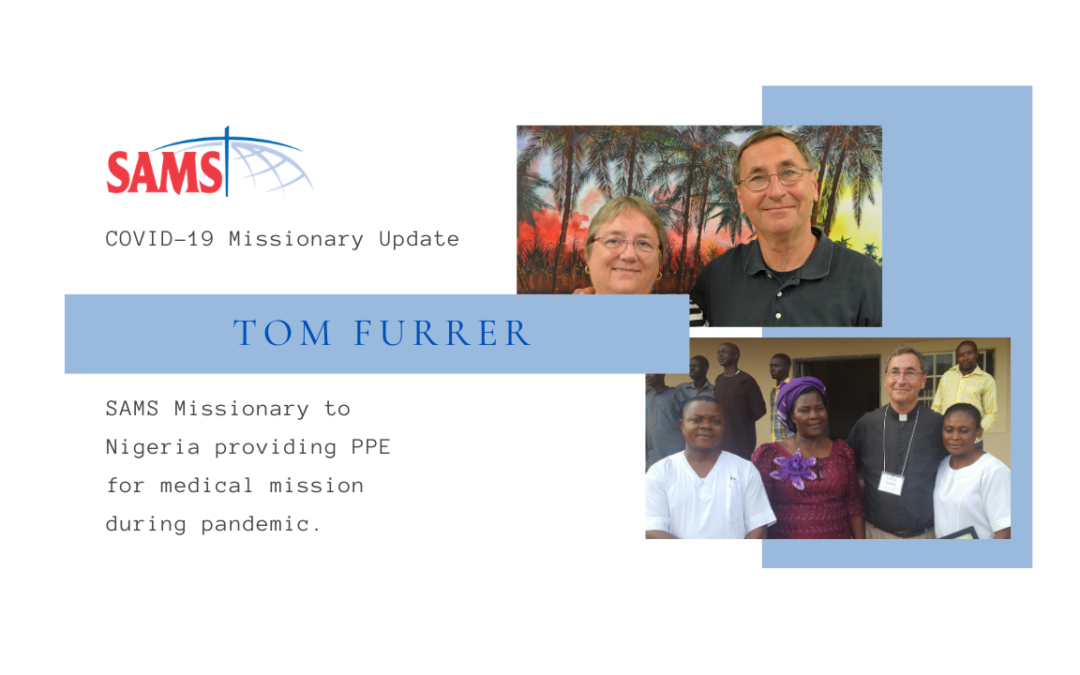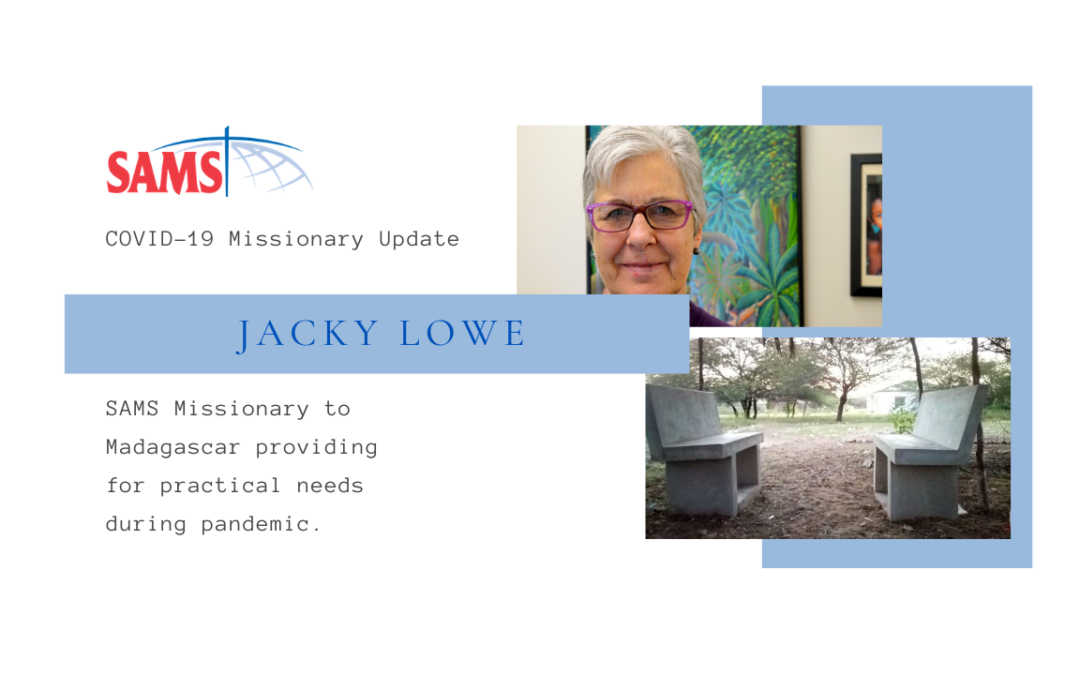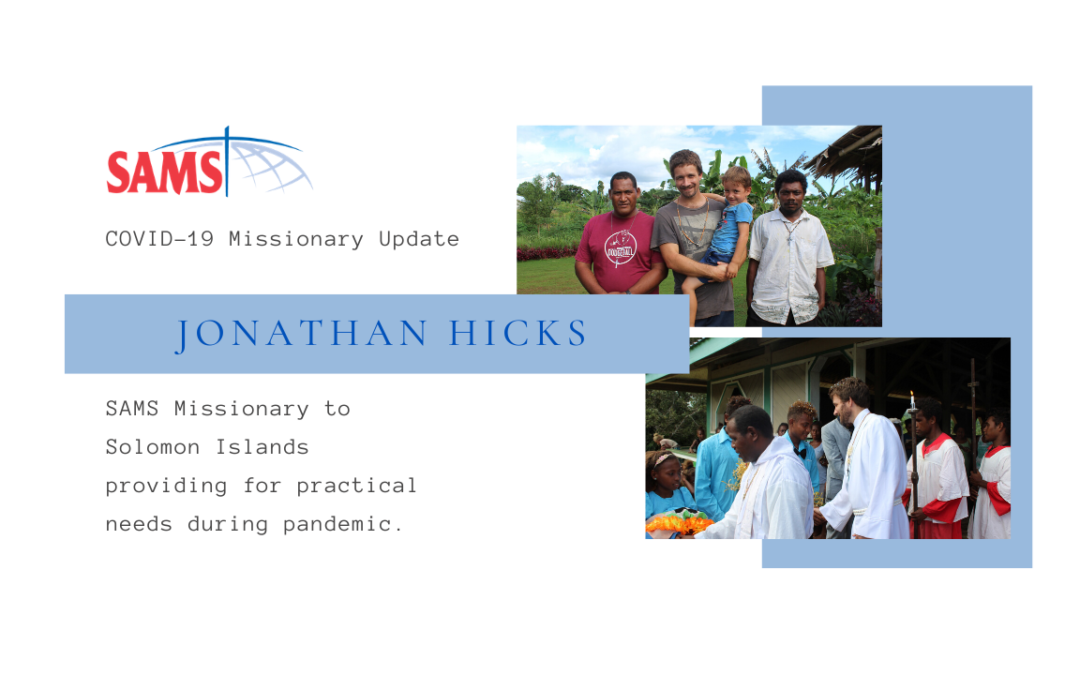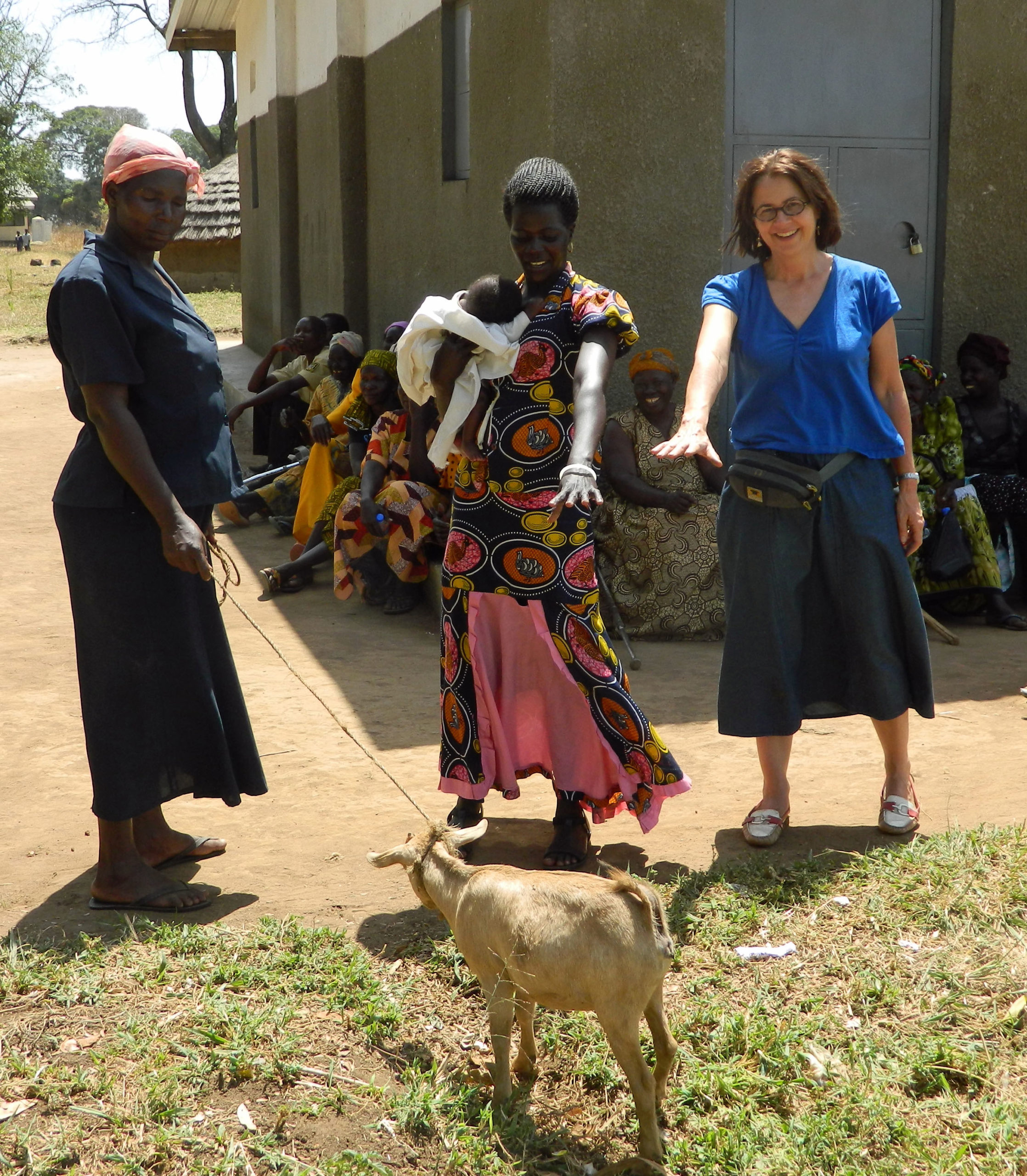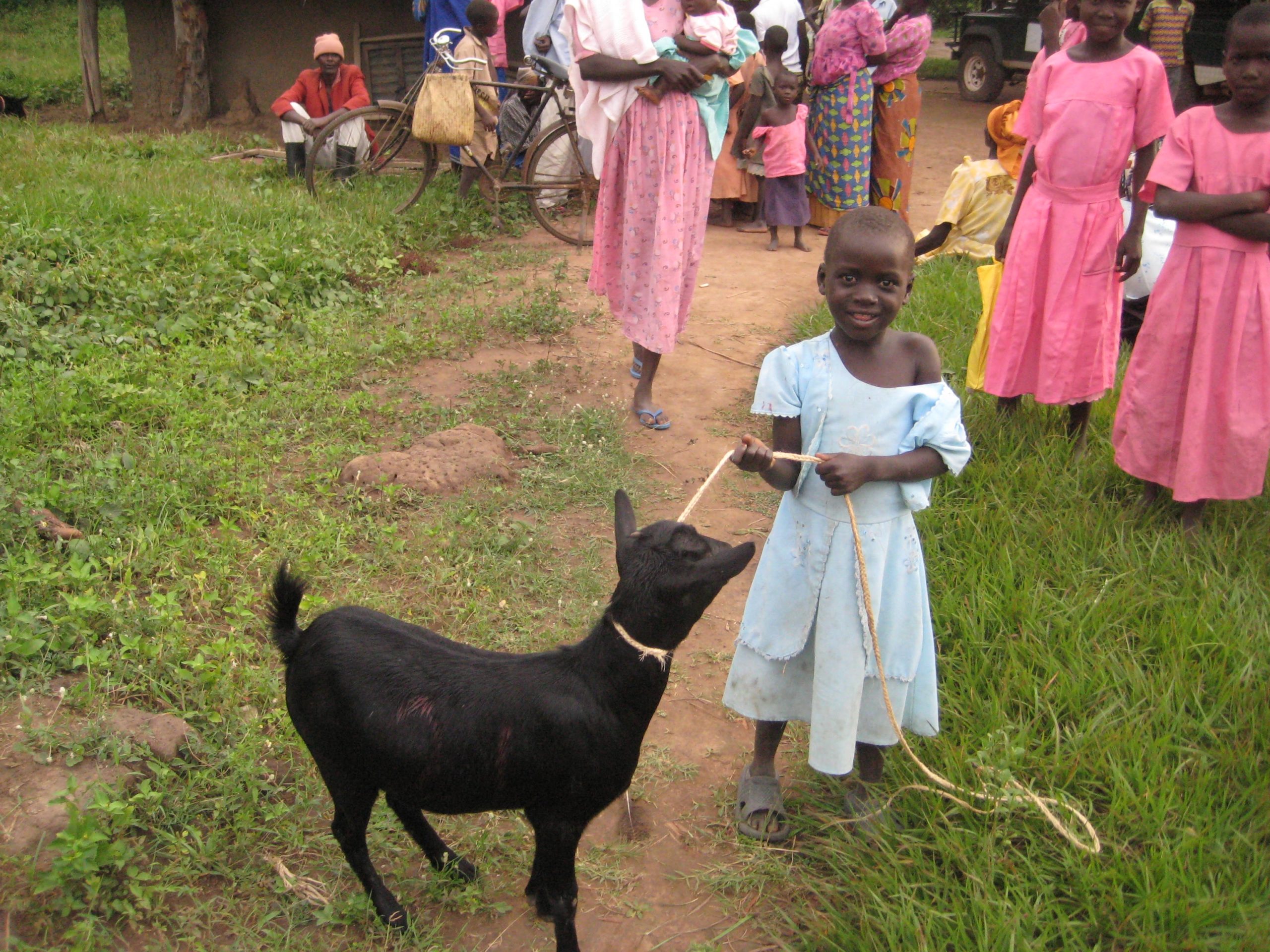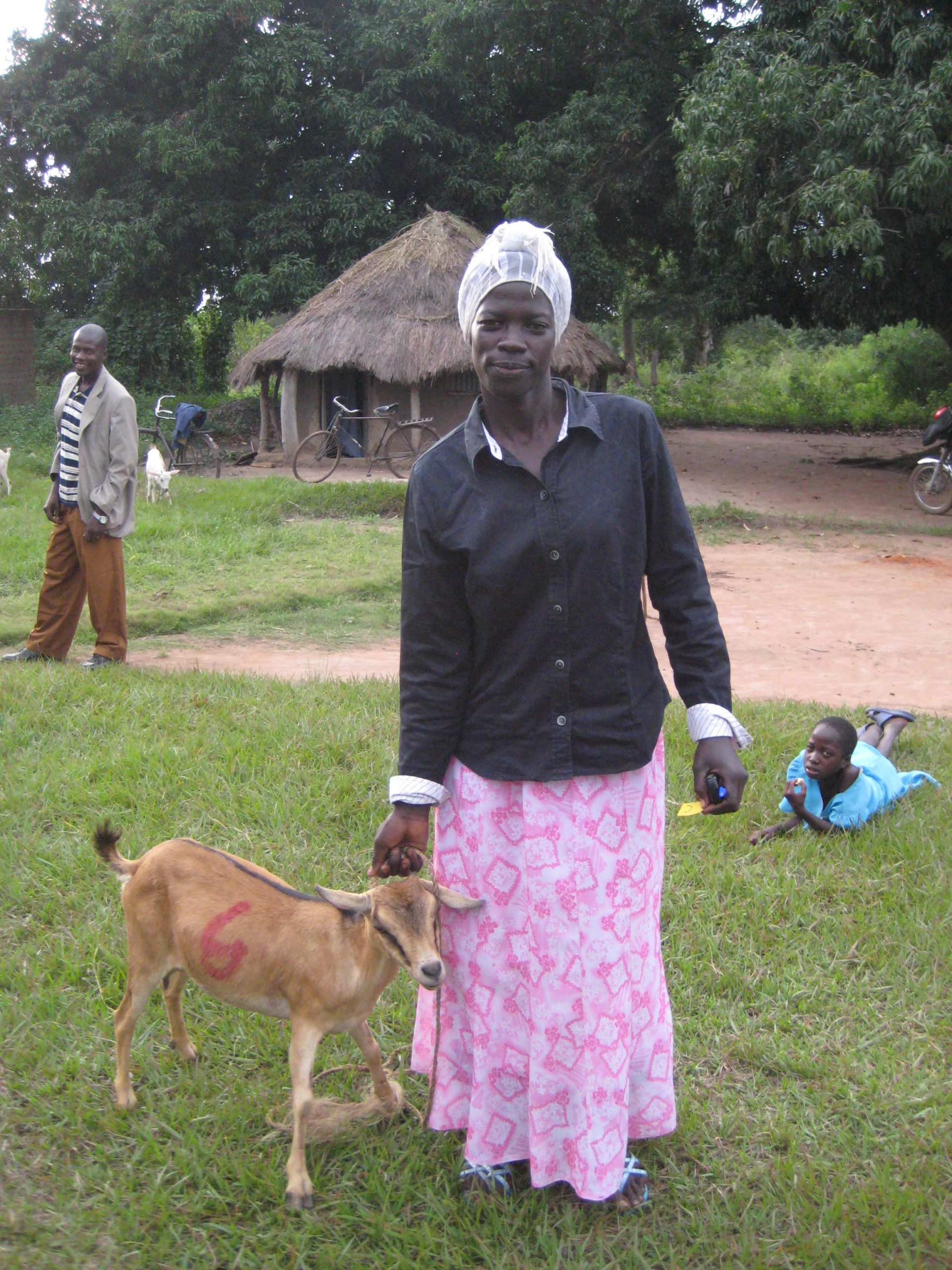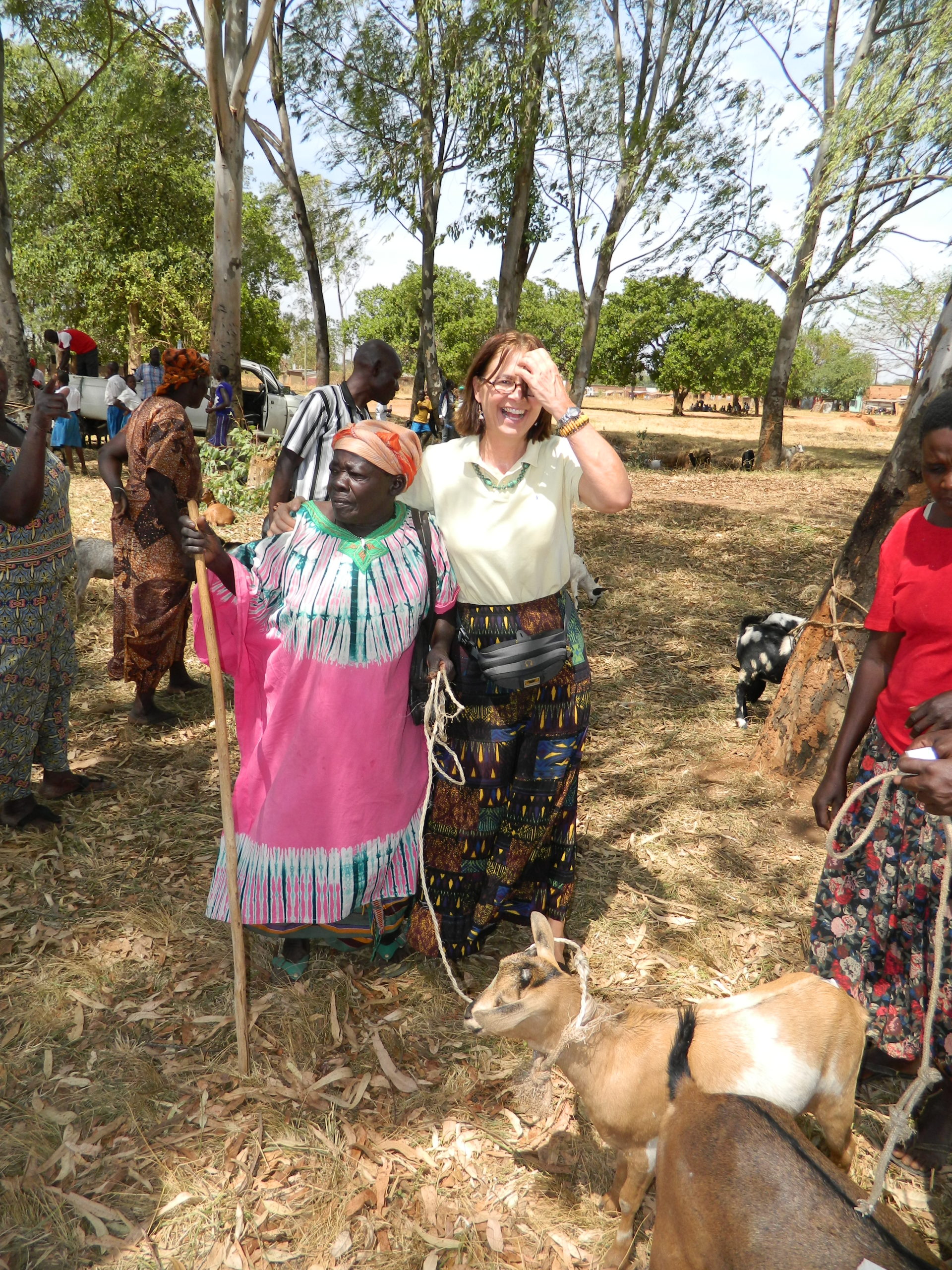,SAMS missionaries are still serving and sharing the gospel in the places they are called during the COVID-19 pandemic. They are living out their Great Commission call, and the SAMS’ incarnational service value.
The Rev. Tom Furrer leads Kateri Medical Services, a medical ministry to the rural and urban poor in Nigeria. Tom received a World Relief Fund grant to provide personal protective equipment [PPE] to all of the clinic’s staff. The funds have also been used to purchase sanitizing equipment and food for the people they serve.
Below is the transcript of Tom’s video update:
Hello. I’m the Reverend Tom Furrer. I’m an associate missionary with SAMS, and also I am the executive director of Kateri Medical Services. And we work in conjunction with the Anglican Church of Nigeria. We have six clinics in Nigeria, in partnership with local dioceses, wherever we are. And our goal is to bring simple, decent, affordable medical care to the rural and urban poor in Nigeria.
Nigeria has a population of about 180,000,000 people. Half of whom, 50% about 90 million people live on less than $2 a day. And those are the people we try to reach with our medical clinics. Those who can’t afford medical care otherwise. So, we run six clinics. And just recently, SAMS through your World Relief Fund has given us a grant of $3,000.
And what we did with that grant of $3,000 was we bought PPE’s personal protective equipment for all of the staff of our six medical clinics. And we bought sanitizer equipment. So [they] have a sanitizer station and each of the medical clinics. So patients and staff could wash their hands and sanitize their hands regularly.
We also bought face masks for people in the churches, because the churches have a lot of very poor people in them and can’t afford face masks, and the government requires facemasks to be worn in churches. And lastly, we also purchased food because of the lockdown there. Just like in this country, a lot of people on the bottom of the economic ladder, when you have a lockdown, they have no means of income. And so, people are starving to death. The churches there are trying as best they can to bring food; just basic sacks of grain for people who don’t have anything to eat. And so, because of your grant, we were able to buy some food for those folks.
And if we get more grants, we’ll buy more food. So, we want to thank you very much for this great grant that you’ve given us. And we have added that with our own funds, so that we’ve supplied about $12,000 worth of PPEs, sanitizer equipment and food for the rural and urban poor in Nigeria. So we on behalf of all of them, thank you very much. We really appreciate it.
